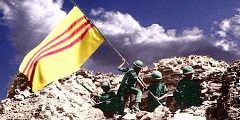Bản điều trần của TS Lê Duy Cấn trước Ủy Ban Nhân Quyền của Thượng Nghị Viện Canada ngày 20-11-2014 về dự án luật S-219. Đây là một dự án luật do Thượng Nghị Sĩ Ngô Thanh Hải đệ tŕnh, nhằm mục đích tưởng niệm cuộc di cư t́m tự do của người Việt tị nạn sau khi Cộng Sản cưỡng chiếm Việt Nam Cộng Ḥa ngày 30-4-1975.




 Reply With Quote
Reply With Quote
Bookmarks